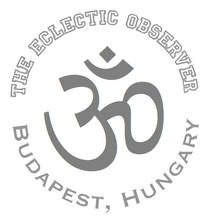
By David Valker
With winter over, the annual season of Budapest road and transit construction is set to begin, to the chagrin of local motorists. As the building of the metroline 4 continues, several important junctions will be closed, adding to those still closed by delays in earlier construction.
Work on expanding the existing Kálvin square metro station began on February 26, but only the sidewalks were unfolded as the change of sewer lines were started. On the 5th of April, due to the rebuilding of the sewer system, the square will be closed to traffic, including trams, with only the tram-exchange buses allowed to enter. The scheduled date to give the square back to the public is the end of 2008.
Another major project is the building of a metro station at Fővám square, next to Szabadság-bridge, and Corvinus university. Initial work began on the 5th of March, and as the building of the frame starts in the middle of March, the Pest-side lower wharf will be closed to traffic. Because tram line 2 goes through this area, it is still a question how traffic will be re-routed. Construction will take approximately 6 months, authorities say. As subway lines are the indispensable veins of a city, the balk, residents must cope with the necessary negative side effects.
Unfortunately, there are more negative side effects than needed, thanks to poor planning and execution . The one possible detour to the Pest-side wharfs is the Buda-side upper wharf, which has been closed since May 15, 2006, due to the building of the Gellért square metro station. It was planned to give part of the roadway back to the public in November, 2006, but thanks to unexpected technical difficulties – such as a gas-pipe that turned up during construction, despite its absence on blueprints - the whole project is delayed. The originally scheduled end to the work was 2009 October, but as yet it is still unknown when the project company BAMCO will actually draw to a close.
The Downtown and Suburbs Traffic Association (VEKE) has claimed that DBR, the company manageing the metro station construction, should examine the links on its own website wherein foreign metro builders explain how their plans avoid difficulties for surface traffic. To which Gulyás László, leader of DBR responded: "The metro here could not be built that way. If we would start to make temporary rails for trams, that would delay the construction even more."
Péter Gábor, a traffic-expert added, "BKV should rethink the order of projects. If they close two major routes next to each other in the city, the consequences can be unpredictable. Especially if you take into account, that the Szabadság-bridge will be closed due to renovation in August."
With luck, the juice will be worth the squeeze, and Budapest’s traffic problems will be over by 2010.
Sources: http://www.metro4.hu/index.php?lang_id=en&menu=1

7 comments:
nice and simple. informative article. well written and researched.
Boma said...
I think this article is good and self-explanatory regarding the ill situations motorist as well as the public would face as the construction of the metro stations continue and also the benefit it would bring to the traffic condition in Budapest. Great work David.
Well constructed article with great amount of information. Easy raeding and at the same time interesting.
I forgot to sign
I live in Budapest and this traffic issue has been part of my every day life in Hungary. It's so good to read an article like this since I had no ideas what-so-ever of what might have been the leading course of traffic in Budapest. Job well done, Dave.
Like any big city there are traffic problems and its explained clearly what the factors are in the case of Budapest.Well written article.
Oh yes, these are the reasons behind things. You are speaking from my heart.
Post a Comment